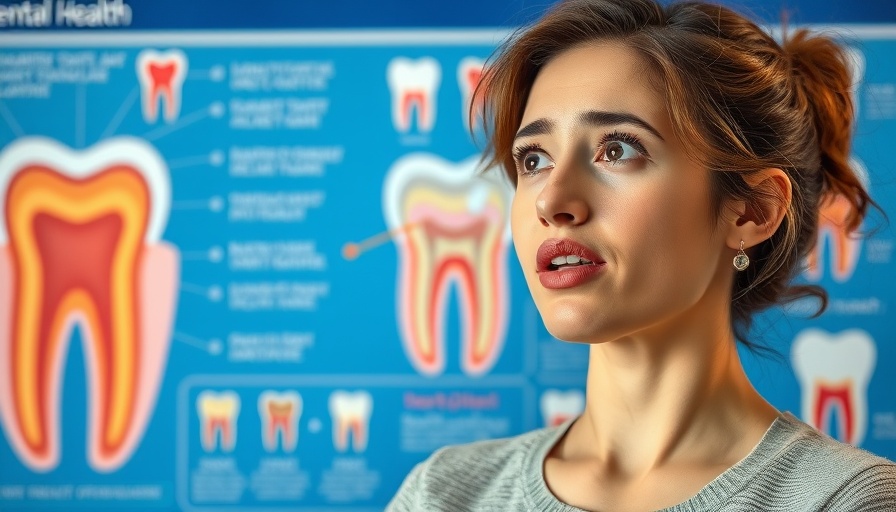
Flossing as a Key to Better Health
The simple act of flossing might not only keep your teeth bright and healthy but now shows promise in reducing your risk of a stroke. Recent research underscores the importance of oral hygiene, linking it to significant overall health benefits. It’s a compelling motivation for anyone looking to improve their well-being.
In 'can flossing teeth reduce stroke risk? #shorts,' the discussion dives into the intriguing link between oral hygiene and stroke risk, prompting us to break down its key findings and their implications.
The Power of Oral Hygiene
Flossing is essential for removing debris and plaque that brushing alone cannot address. A study indicates that flossing just once a week may have a protective effect against strokes, a finding that might surprise many.
Don’t Neglect Daily Flossing
However, this doesn’t mean you can let your dental hygiene slide. Experts unanimously agree that flossing daily is crucial not just for preventing oral diseases like gum disease and cavities but also for ensuring overall health. The advantages go far beyond a pretty smile; consistent oral care habits can lead to a lower risk of serious health conditions.
Misinformation About Flossing
Recently, a flurry of questions emerged regarding whether weekly flossing is sufficient. Let’s dispel this myth: daily flossing is non-negotiable. Experts reinforced that the health benefits of adhering to a daily flossing routine cannot be underestimated, and it’s vital to maintain it to avoid complications down the line.
Other Health Benefits of Flossing
Along with reducing your stroke risk, daily flossing contributes to various aspects of oral health. Preventing gum disease not only helps maintain your gorgeous smile but can also ensure you steer clear of tooth pain relief interventions like root canals and dental surgeries. Furthermore, fresh breath, cavity prevention, and even the possibility of needing less cosmetic dentistry down the line are all significant reasons to make flossing part of your daily routine.
Common Misconceptions About Dental Hygiene
While it’s known that brushing is crucial, many tend to underestimate the value of flossing. Flossing techniques and products, which can range from traditional dental floss to innovative interdental cleaners, are essential in a comprehensive dental hygiene routine. Emphasizing the importance of inter-dental cleaning can change perceptions about how effective oral hygiene truly is.
The Bottom Line on Flossing and Health
So, as we reflect on the outcomes of this research, the clear message is to prioritize your dental health actively. Embracing a daily dental hygiene routine that includes proper flossing can help keep both your mouth and body in optimal health. By acknowledging the connections between oral hygiene and risks of systemic diseases, you empower yourself to take proactive steps in your wellness journey.
Actionable Steps for Better Oral Hygiene
To reap the full benefits of flossing, establish a routine that works for you. Here are a few tips:
- Choose a flossing time that fits seamlessly into your daily routine, whether morning or night.
- Experiment with different flossing techniques or tools to find what’s most effective for you.
- Pair your flossing with regular dental checkups for a comprehensive approach to oral health.
 Add Row
Add Row  Add
Add 




Write A Comment